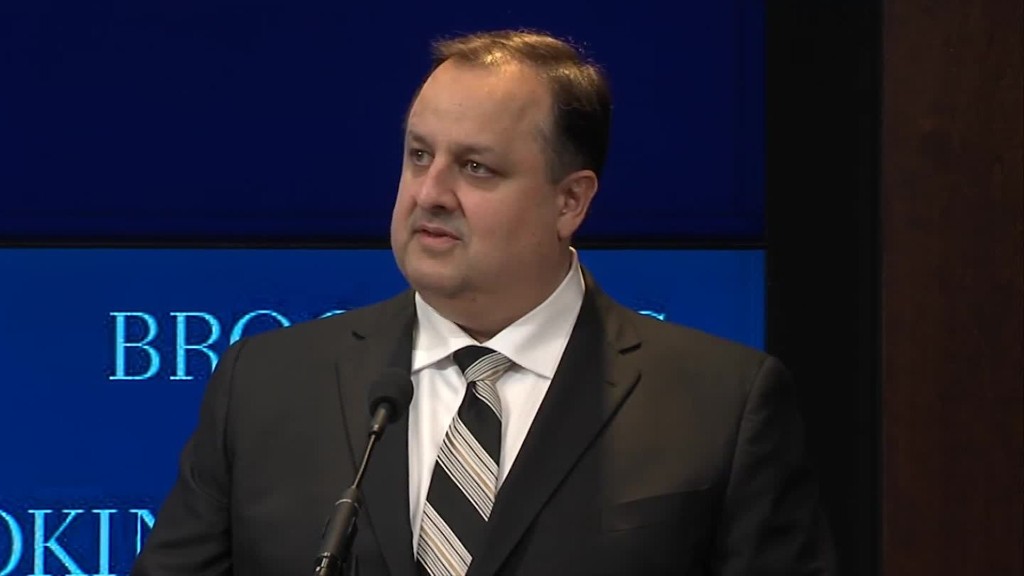
Membership at President Trump's private club in South Florida is getting a lot more exclusive.
The Trump-owned Mar-a-Lago resort raised its initiation fee to $200,000 this month, double the cost from a year ago. And management says membership is hovering at about 480 people -- close to the cap of 500.
Members already enjoyed a slew of posh oceanside benefits, from tennis courts to private pools with cabanas. For the next four years, they'll get another perk -- access to what Trump has called the Winter White House.
Bernd Lembcke, the club's managing director, told CNNMoney that the Jan. 1 price hike had nothing to do with Trump's victory last November. The increase, he said, was a long-planned return to what Mar-a-Lago charged about a decade ago.
The club lowered the initiation fee in the intervening years because membership declined. Lembcke noted that many victims of the Bernie Madoff Ponzi scheme were in the Palm Beach area, and the financial crisis didn't help.
The resort doesn't extend membership to the general public. New members must be enlisted by someone who's already in.
Related: What Trump is really doing about his business
"We decided to reduce it to make it easier for their friends to join the club," Lembcke said.
The club bumped its initiation fee to $150,000 last September, and targeted January for another increase, he said.
"$200,000 is not out of reach," Lembcke said. "So that is not a problem. And that is a fair value."
The timing raised questions among ethics lawyers, who have repeatedly questioned Trump's refusal to sell his assets. Trump's stake in Mar-a-Lago and other business ventures, they say, opens the door to conflicts of interest while he's president.
Larry Noble, general counsel of the Washington-based Campaign Legal Center, said it's hard not to see the increases "as being part of an effort to exploit his being president."
"Even if legal," Noble said, "it presents clear conflicts of interest and, perhaps equally important, demeans the presidency."
Noble and other ethics lawyers have criticized Trump's plan to separate himself from his business holdings. Trump is stepping away from management but not giving up his ownership stake, and ethics lawyers say he still stands to profit from the presidency.
The Trump Organization has pledged not to enter new deals in foreign countries while Trump is president. But it will make deals in the United States -- a step back from Trump's original promise of no new deals at all.
Related: Trump Organization names two execs to police conflicts
Trump had it right the first time, said Norman Eisen, a visiting fellow at the Brookings Institution who led government ethics initiatives for President Barack Obama during his first term.
Eisen said Trump's initial plan to not make any new deals "recognized the peril that the reported hotel expansion poses from a conflicts, influence and corruption perspective."
Trump Organization executives have already indicated they're looking at expansion. Trump Hotels CEO Eric Danziger suggested to Bloomberg this week that the company could triple the number of Trump-branded hotels in the United States.
"There are 26 major metropolitan areas in the U.S., and we're in five," Danziger told the news organization. "I don't see any reason that we couldn't be in all of them eventually."
Asked about expansion plans, Trump Hotels spokeswoman Jennifer Rodstrom said in an email that the company sees the United States as a "significant growth opportunity."
The Trump Organization has appointed an ethics adviser who will approve any new deals that could raise potential conflicts. Washington lawyer Bobby Burchfield, who was named to that job this week, did not respond to a request for comment from CNNMoney.
--CNN's Jason Carroll contributed to this story.
